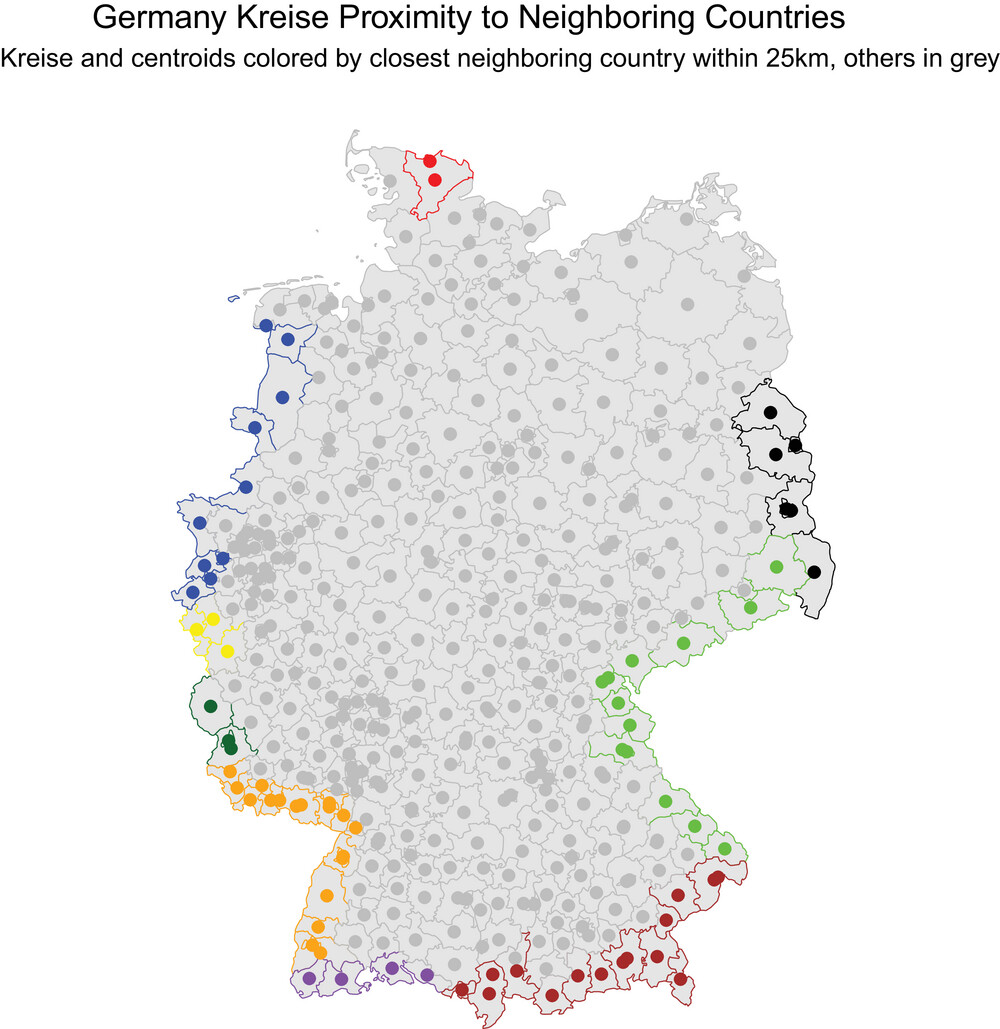In Europe, 18 countries knew better than to wait for WHO to ignore claims from China that it was not a pandemic and closed their borders.
A new paper notes that while it may have saved lives, it aggravated an "us" and "them" mentality toward immigrants that has always been simmering in Europe. Those who did not have confidence in the competence of the EU had even less and people near the borders felt increased hostility toward immigrants who may be putting lives at risk.
To drive home their point, they focused on Germany, which is reliant on immigrant labor and those in European countries to fund its social programs but has a Not Really European attitude toward immigrants that do the dirty work.(2) It created a valuable model because not every part of Germany closed its borders. They combined closure status with survey results from the German Socio-Economic Panel, a representative sample of the German population that includes topics like immigration and the EU.

They found that after the border closed, positive attitudes toward both being part of the EU (-6.5%) and immigrants (-7.6%) declined.
It rebounded to the casual disdain that Germans have for everyone so it may have been that people were worried about other countries exporting COVID-19 to German homes. A month later acceptance of other Europeans also came back. Personal security may have gradually become less of a concern again so they could feel part of a united Europe a little more. They may have seen that other countries were doing their part.
It is all speculation and based on surveys so it is only EXPLORATORY, there is no evidence Germans are more xenophobic than usual. Humanities academic Dr. Lisa Herbig from the University of Amsterdam still finds it meaningful. "Political opinions don’t usually shift this quickly. A 6 to 8 percent drop within a week is striking. Our study connects directly to today’s political debate around Schengen border closures in countries like the Netherlands and Germany. It shows how such measures can have unintended, negative effects on public opinion and the broader political discussion."
NOTES:
(1) The Mayor of New York City even told residents to go to their favorite bar and get one last drink because the President was forcing them to shut down. A few weeks later the President ordered a hospital ship out of maintenance to rush to New York City because they were overwhelmed with COVID-19 cases. And blamed Republicans for that.

(2) On the plus side, they make you speak German to become naturalized, and they make you at least officially declare you are not a Holocaust denier. That second part would wipe out a whole lot of visas for humanities academics in America.




Comments